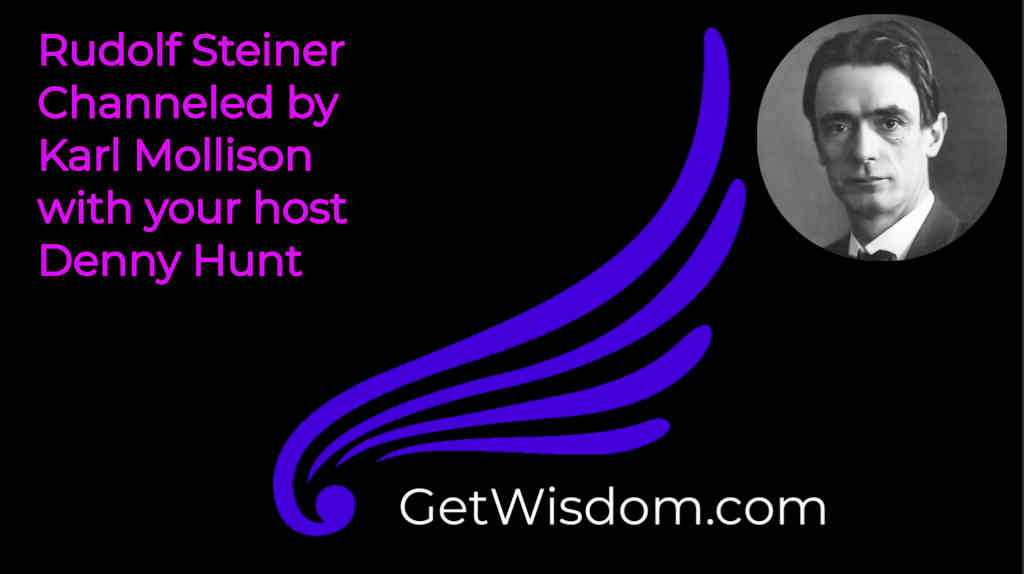
Rudolf Steiner Channeled by Karl Mollison 09Oct2019
From https://en.wikipedia.org/wiki/Rudolf_Steiner
Rudolf Steiner February 1861 – 30 March 1925 was an Austrian clairvoyant, philosopher, social reformer, architect, economist and esotericist.
Steiner gained initial recognition at the end of the nineteenth century as a literary critic and published philosophical works including The Philosophy of Freedom.
At the beginning of the twentieth century he founded an esoteric spiritual movement, anthroposophy, with roots in German idealist philosophy and theosophy; other influences include Goethean science and Rosicrucianism.
In the first, more philosophically oriented phase of this movement, Steiner attempted to find a synthesis between science and spirituality.
His philosophical work of these years, which he termed “spiritual science”, sought to apply the clarity of thinking characteristic of Western philosophy to spiritual questions, differentiating this approach from what he considered to be vaguer approaches to mysticism.
In a second phase, beginning around 1907, he began working collaboratively in a variety of artistic media, including drama, the movement arts (developing a new artistic form, eurythmy) and architecture, culminating in the building of the Goetheanum, a cultural centre to house all the arts.
In the third phase of his work, beginning after World War I, Steiner worked to establish various practical endeavors, including Waldorf education, biodynamic agriculture,[15] and anthroposophical medicine.
In 1921, Adolf Hitler attacked Steiner on many fronts, including accusations that he was a tool of the Jews, while other nationalist extremists in Germany called for a “war against Steiner”. That same year, Steiner warned against the disastrous effects it would have for Central Europe if the National Socialists came to power.
In 1922 a lecture Steiner was giving in Munich was disrupted when stink bombs were let off and the lights switched out, while people rushed the stage apparently attempting to attack Steiner, who exited safely through a back door. Unable to guarantee his safety, Steiner’s agents cancelled his next lecture tour.
Steiner advocated a form of ethical individualism, to which he later brought a more explicitly spiritual approach.
He based his epistemology on Johann Wolfgang Goethe’s world view, in which “Thinking… is no more and no less an organ of perception than the eye or ear. Just as the eye perceives colours and the ear sounds, so thinking perceives ideas.”
A consistent thread that runs from his earliest philosophical phase through his later spiritual orientation is the goal of demonstrating that there are no essential limits to human knowledge.
Can Theosophy or the knowledge of God be reconciled to Anthroposopy or the knowledge of man?
